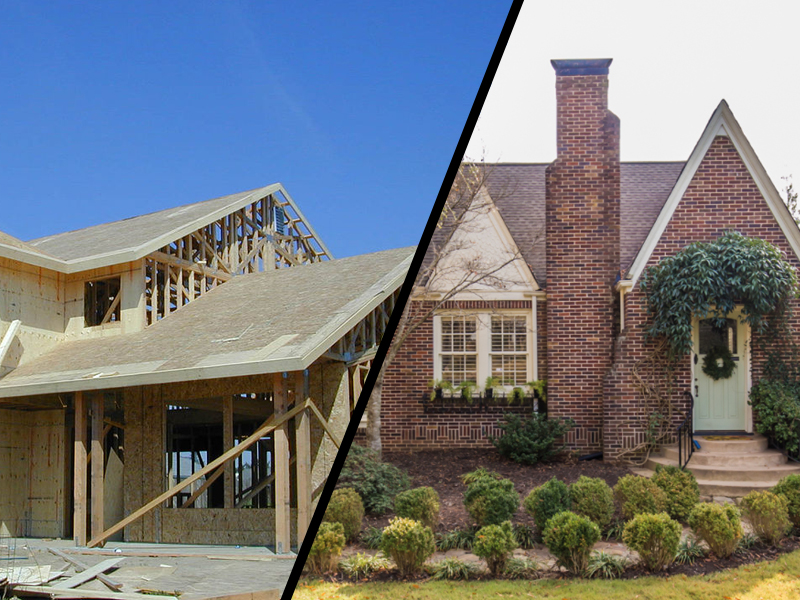The age-old debate: new construction vs. older homes. It’s a decision that can weigh heavily on anyone’s mind, especially for those looking to buy or rent a new place to call home. Both options have their unique advantages and disadvantages, and what’s right for one person might not be right for another. In this article, we’ll delve into the pros and cons of each, helping you make an informed decision that suits your needs, lifestyle, and budget.

New Construction: The Lucrative Lure of Luxury
Imagine walking into a brand-new home, fresh off the assembly line. The scent of freshly painted walls, the gleam of stainless steel appliances, and the warmth of modern lighting fixtures all contribute to an irresistible allure. New construction homes often boast:
- Energy efficiency: Modern homes are built with sustainability in mind, featuring eco-friendly materials, and energy-efficient appliances, which can lead to significant savings on your utility bills.
- Advanced safety features: Newer homes typically incorporate cutting-edge safety features, such as fire-resistant materials, advanced alarm systems, and smart home technology.
- Low maintenance costs: Since everything is new, you can expect fewer repairs and replacements in the short term, saving you money on upkeep and renovations.
- Warranties and guarantees: Many builders offer warranties on materials and labor, providing peace of mind for homeowners.
- Customization options: Buying a new home often means you can personalize it to your heart’s content, from the layout to the finishes.
However, new construction homes also come with some drawbacks:
- Higher upfront costs: The price tag on new construction homes can be steep, especially in desirable areas.
- Limited character and charm: Some people find new homes lack the unique character and history of older homes.
- Neighborhoods may be still developing: Depending on where you buy, the neighborhood might still be under construction, which can be noisy and stressful.
Older Homes: The Charm of Character
Stepping into an older home can be like taking a step back in time. The creaky wooden floors, the original moldings, and the nostalgic vibe all have a certain charm that’s hard to replicate in newer homes. Here are some perks of owning an older home:
- Unique character and charm: Older homes have a story to tell, and their quirks and flaws are often part of their appeal.
- Established neighborhoods: Older neighborhoods are often more developed, with mature trees, established community centers, and a stronger sense of community.
- Potential for renovation: Older homes can be renovated to suit your needs, allowing you to add your personal touch while maintaining their original charm.
- Generally lower purchase price: Older homes tend to be priced lower than their newer counterparts, making them more accessible to budget-conscious buyers.
However, older homes also come with some potential drawbacks:
- Higher maintenance costs: Older homes can be more expensive to maintain, as they may require more frequent repairs and replacements of outdated systems and materials.
- Outdated materials and systems: Older homes may contain outdated materials like asbestos, lead paint, or outdated electrical and plumbing systems, which can be hazardous to your health and expensive to upgrade.
- Less energy efficiency: Older homes often lack the energy-efficient materials and appliances found in newer homes, which can lead to higher utility bills.





